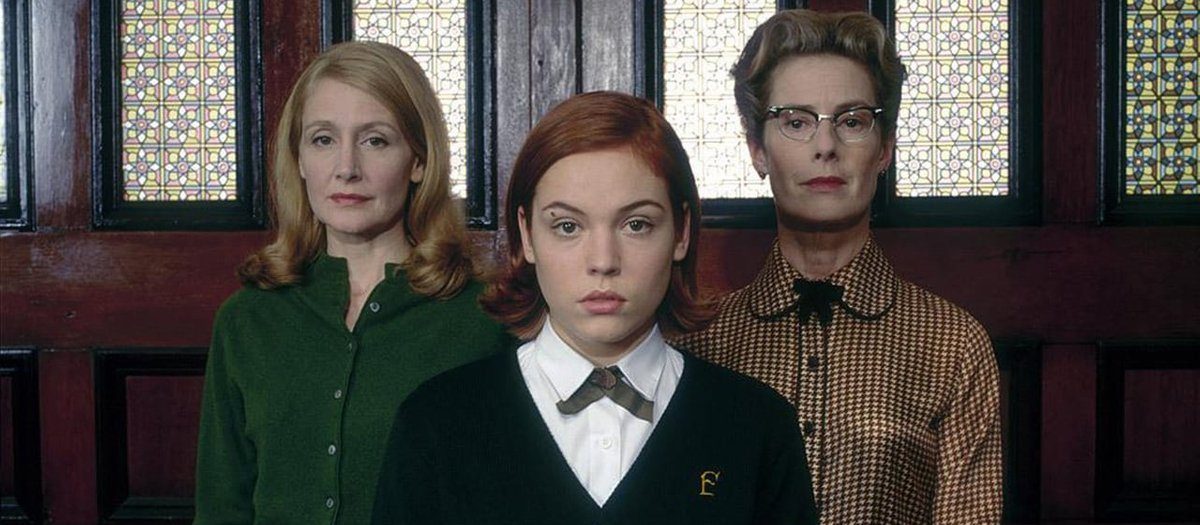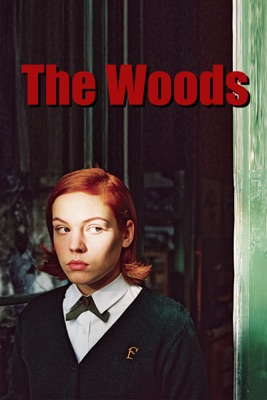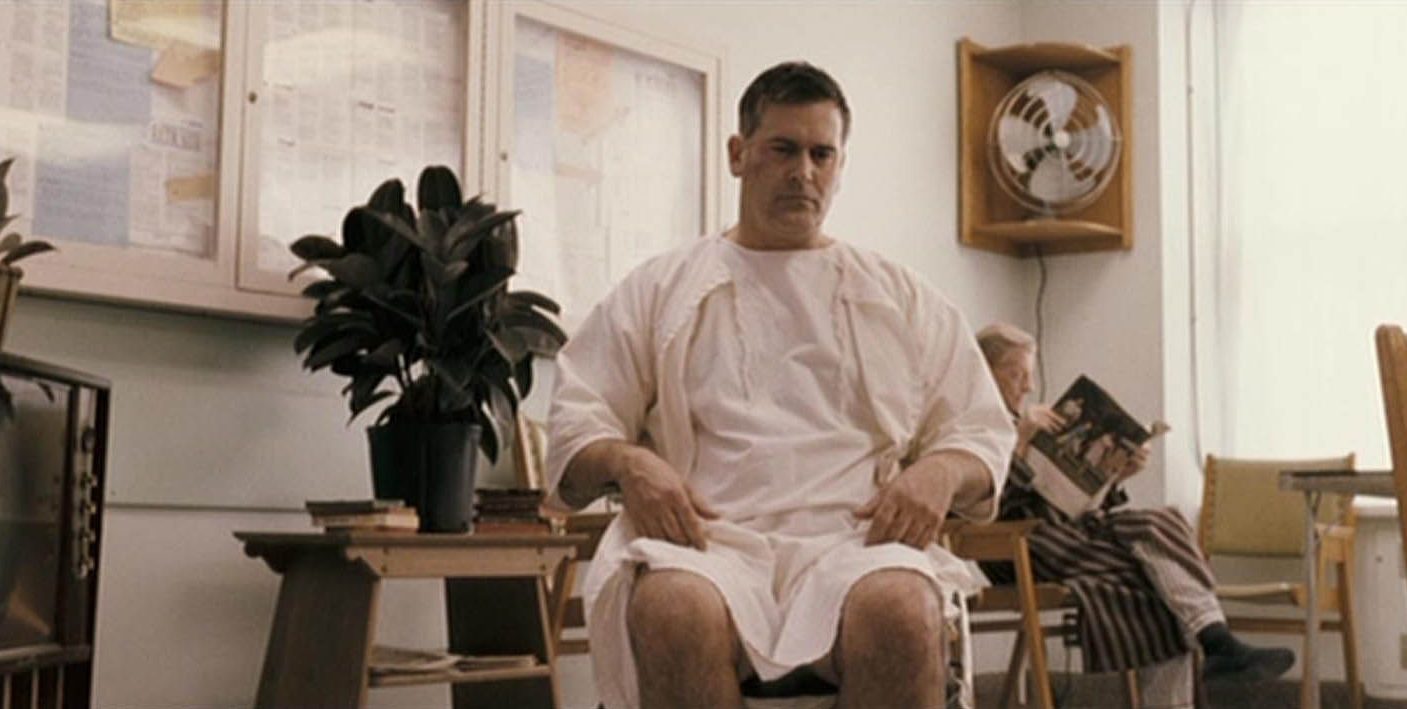

“A loving mother never abandons her child. To be separated from her is like an amputation. It doesn’t matter what a child looks like—if she’s smart, if she’s stupid, if she has no friends. So why would your mother leave you here?”
Kept afloat by slick production and a talented (if underutilized) cast, The Woods uncertainly wavers between various genre tropes before climaxing with a violent finale. A weird but intriguing amalgamation of gothic mystery, monster movie, slasher flick, and coming-of-age drama, it is ultimately derailed by an insistent emphasis on thrusting a mediocre backstory onto the audience, as if we cannot conceive of something spooky unless it has a perfectly coherent and logical chain of events that caused it. There’s also some overuse of shoddy CGI. It’s a step down for Lucky McKee after his first two films (All Cheerleaders Must Die, May), or at least, a step in a more polished, studio-approved direction that lacks the punch and audacity of those initial projects.
Set in the 1960s, our story follows Heather Fasulo (Agnes Bruckner), a rebel teen who is sent to an all-girls boarding school after intentionally starting a forest fire to provoke her negligent mother. Horror icon Bruce Campell, who lends the production some major street cred, plays Heather’s father Joe. Though decidedly not onboard with shipping his daughter off to a school in the middle of the woods run by witches, he unfortunately has passed the whole “wearing the pants” thing to his wife Alice (Emma Campbell); and Alice wants her daughter out of the house, even better if this all-girls school can mold her into a conforming young woman. Though not financially put together, Joe manages to bluff his way through talks with headmistresses Ms. Traverse (Patricia Clarkson), arranging for Heather to sit for an exam to potentially qualify for a merit scholarship. In addition to Ms. Traverse, the hawklike Ms. Leland (Catherine Colvey) and the twitchy Ms. Mackinaw (Marcia Bennett) stalk the hallways and enforce the code of conduct.
Disowned by her parents and lacking social skills, Heather does not fit in at Falburn, although she doesn’t really try. She refuses to roll up her socks or tuck in her shirt, and talks back when reprimanded, easily provoking the sinister overseers who demand conformance. Ominous occurrences start piling up—a bloody night terror symbolically linked to a future event, whispering voices emanating from the lush forest behind the school, mysterious disappearances, bald-faced lies told to the police. It becomes evermore certain that something truly evil lurks beneath Falburn’s scholarly façade, a suspicion given more legitimacy when Heather’s “gifted” exam segues into experiments with supernatural power.

Heather eventually forms something akin to a friendship with a taciturn girl named Marcy (Lauren Birkell), bonding while sharing headphones and listening to Lesley Gore on Marcy’s transistor radio. She begins to assimilate and have fun, although she fiercely butts heads with Samantha (Rachel Nichols), the nasty ringleader of a clique who, it turns out, is actually trying to help her in some roundabout way. The two routinely sling insults back and forth—Samantha gives Heather the nickname “fire-crotch”—but they eventually find themselves alone in the woods where Samantha reveals her covert maneuvers. Shortly after their encounter, Samantha is found hanging from the neck by a bedsheet in the cafeteria.
Heather’s disorienting escape attempt leads to some ridicule in the sleeping quarters, but after the teasing subsides, the swirl of rumor picks up and we get some of the murky backstory about witches killing the headmistress and retreating to the woods. While I found the emphasis on backstory to nearly derail any forward momentum, it didn’t even provide a concise explanation for the events, so I fail to see why it was included at all. Having received a phone call from Samantha before her untimely death, Joe puts his foot down and tries to remove Heather from the school, only to have the animate forest claw him and his family back into its clutches. In perhaps the film’s only truly creative moment, Heather finds herself being restrained and drugged in a hospital while her father is similarly smothered by Ms. Traverse’s black blood in a scene of cross-cut action. Puking up black bile and a twig, Joe comes out of his witch-induced catatonia, grabs an axe (I was hoping for a chainsaw), and rescues his daughter.
From the setting to the sound design to the preponderance of female students, The Woods is clearly indebted to Suspiria, though it fails to live up to that film’s influence. The old school premise is intriguing, the setting is realized wonderfully, and McKee’s visual and aural direction are stylish (I especially thought the chilling atmosphere conjured through the use of whispering trees was very effective). But the story fails to compel because it flits around to different genres without ever deciding to follow through on anything, shambling forward without a strong sense of purpose. There’s an unfortunate overuse of mediocre CGI late in the film that renders several climactic scenes humorous, and the ending feels completely perfunctory. But what truly hamstrings this film is the underwritten characters, despite several overachieving performances, particularly from Buckner and the trio of mistresses (regrettably, Bruce Campbell is given little to do—I recall a single scene where his trademark humor is given a chance to peek out through an otherwise straight faced screenplay).
Although it contains many necessary ingredients for a successful horror film, and excels in several of those categories, The Woods is a subpar film. It gets too muddled down by its overly complicated and maybe incoherent backstory and too often fails to integrate its several suggestive threads. My feelings remain divided on this one. It has the atmosphere, the stylish presentation, the creepy characters. But McKee’s eccentricities are softened, the execution is lacking, and the ending is a letdown.